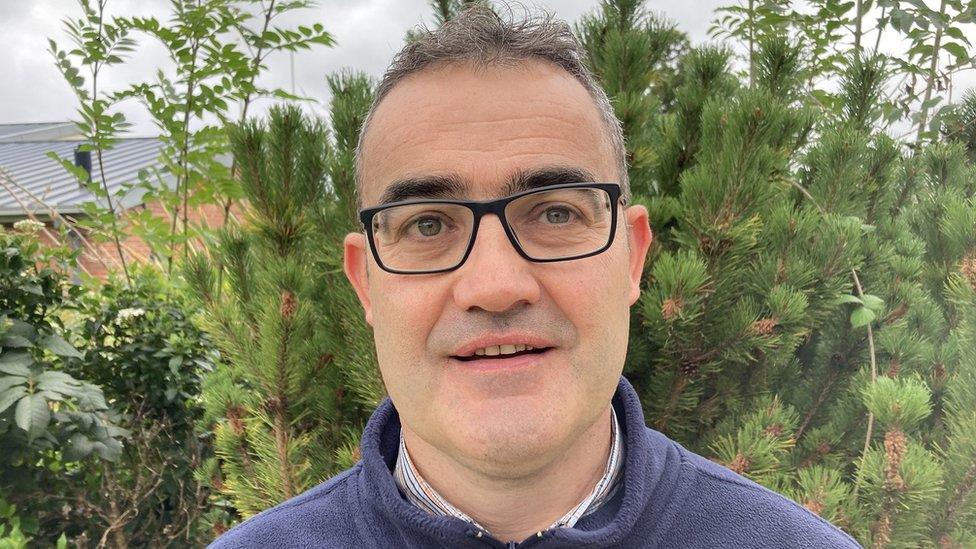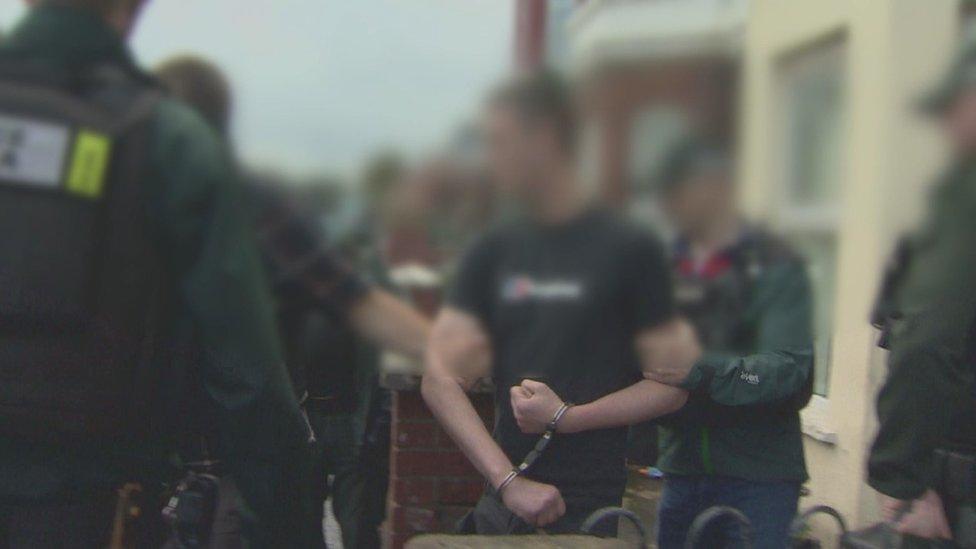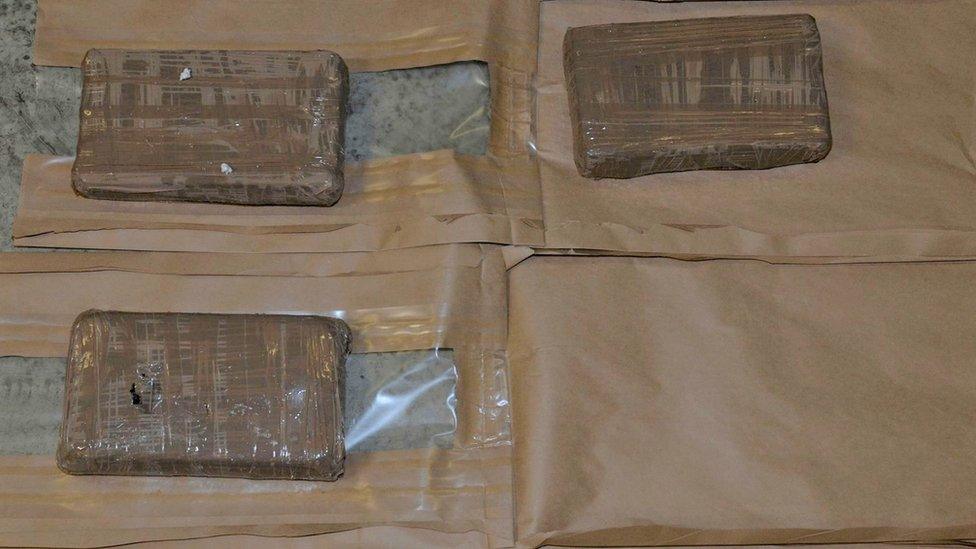Cocaine use in rural Northern Ireland 'normalised'
- Published

Aidan Ormsby is a drugs and alcohol support manager in Irvinestown,
Cocaine use is now so prevalent in rural communities that it has become "normalised".
Aidan Ormsby, a drugs and alcohol support manager in Irvinestown, said it is now easily accessed in towns and villages across rural Northern Ireland.
"It's not the preserve of the cities or the urban districts any longer," he said.
"We're seeing it in all arts and parts of society and in all arts and parts of rural areas as well."
Mr Ormsby works at the ARC Healthy Living Centre which provides support services to people throughout Fermanagh and parts of Tyrone.
"We know anecdotally from lots of stories, right across the rural geography, right across Fermanagh and Tyrone, that it's available pretty much everywhere," he added.
He also expressed concern about the level of acceptance around the growing use of the Class A drug.
"It's been nearly, to a large extent, normalised in that people nearly have got to the point where young people and people who are using it don't even see it as a drug.
"It's become normalised for a normal night out."
NI drug supply market 'transformed' due to social media
He also thinks many people are not aware of the full extent of its availability and use in rural areas.
"We cover Fermanagh, the most rural part of Northern Ireland, and you know I don't think there's anywhere in Fermanagh or Omagh, or in the surrounding hinterlands of Omagh, that you couldn't get it, and that has become normalised, really," he added.
In the past, cocaine was often regarded as the illegal drug of choice of some middle class people because they could afford it.
But an increase in supply, demand, and falling prices has made it more available and affordable across all socio economic groups in recent years.
A leading academic researcher on substance use and abuse has said a public health campaign is needed to address the widespread and growing use of cocaine across society.
Professor Anne Campbell, from the Drug and Alcohol Research Network at Queen's University Belfast, has told BBC News NI that a "harm reduction message" is needed around cocaine, similar to smoking and alcohol awareness campaigns.
"If we don't tell people about these dangers, they can not make an informed choice about what they take and what it does to their body," she added.
"In the same way that we do with alcohol, we tell people about the potential dangers. In the same way that we do with smoking.
"The difficulty with cocaine is that it's an illegal drug, it's a class A drug, so we will not see a public health campaign to educate our young people and our older people about the possible negative effects."
'Don't stick head in the sand about illegal drugs'
Prof Campbell believes this position is no longer sustainable.
"Society has a responsibility and I do think our organisations in power have a structural responsibility to educate people, in the same way as we do about alcohol, we talk about it freely.
"Why can we not have these open conversations?"
Despite the challenges around the issue, she believes public awareness is essential.
"People will say that I condone the use of that illegal drug. I'm not saying that, it's an illegal drug," she added.
"But increasingly more and more people are taking it. So, what do we do, stand by and let our young people suffer, and our older people not have the information?"
Prof Campbell believes the growing prevalence of cocaine across Northern Ireland and the risk to the health of people who use it can no longer be ignored.
She concluded "We would not do that with any other substance. Let them know and let them make the decision is my view."

Drug seizures and arrests rising
The PSNI says that the number of drug seizures it has made has "shown a mainly upwards trend" since 2006-7.
In the 12 months from 1 July 2022 to 30 June 2023:
There were 8,934 drug seizures in Northern Ireland, an increase of 802 (9.9%) on the previous 12 months
Seizures of class A, B and C drugs all rose
The most commonly seized drug was cannabis, followed by cocaine, benzodiazepines and pregabalin
Ten policing districts showed an increase in drug seizures
There were 3,340 drug-related arrests, an increase of 318 (10.5%) compared to the previous 12 months
Ten policing districts showed an increase in drug-related arrests, with the largest rise in Lisburn and Castlereagh
If you have been affected by addiction, help and support is available at BBC Action Line.
Related topics
- Published11 October 2023

- Published27 September 2023
- Published19 August 2023
